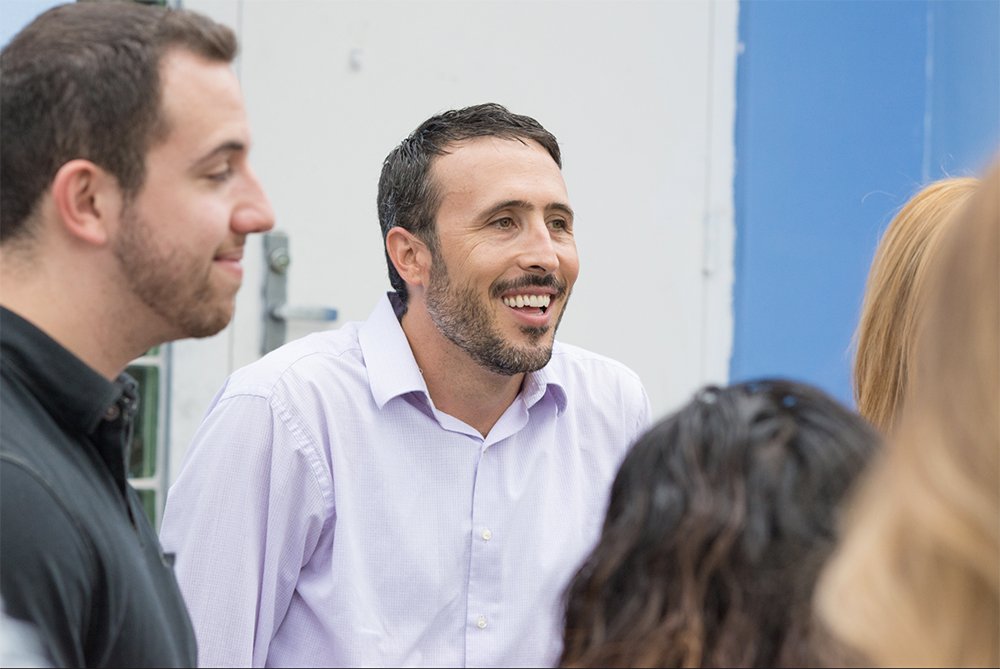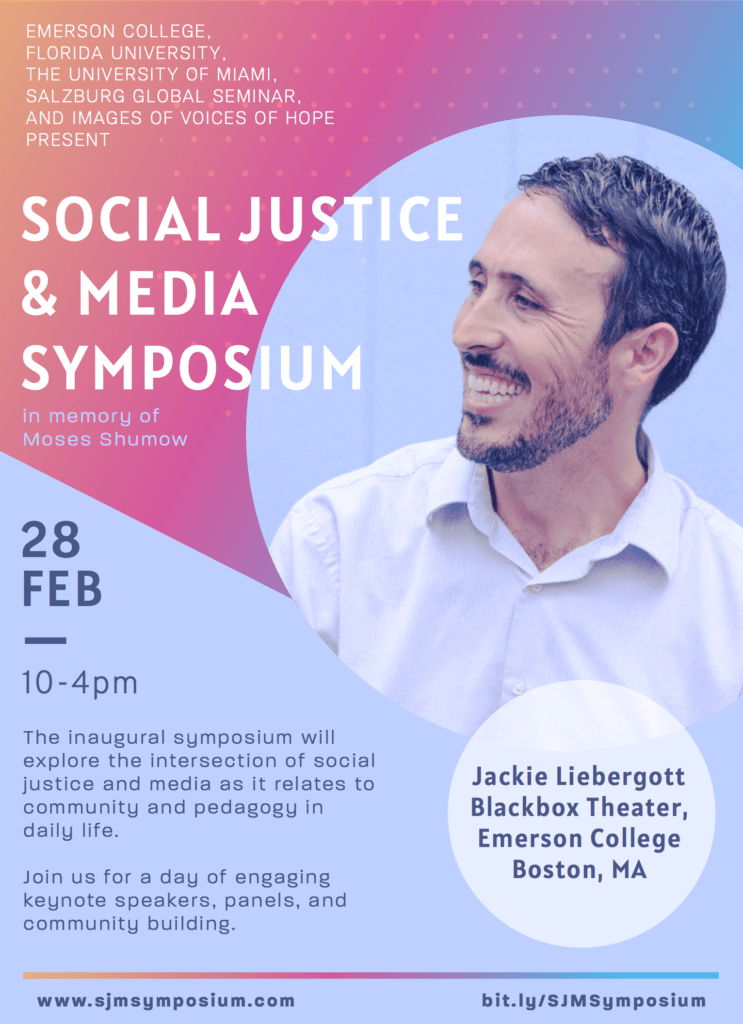Persistence in Media, the Social Justice & Media Symposium 2020

By Molly Loughman
Modern media technologies may have been created to connect people, but in many ways they have also succeeded in disconnecting.. Sensational content in social and news networks have siloed audiences into like-minded groups, while also seeding widespread distrust and divide in communities, politics, and information feeds.
It is in this precarious and uncharted new digital media environment that journalists are struggling to earn the trust from communities and peers. Now scholars are seeking new methods for teaching responsible journalism, and activists are advocating for the media and civic systems that best reflect equitable and vibrant societies. On February 28, in the Paramount Center’s Jackie Liebergott Black Box Theatre, they will gather from across continents to discuss solutions at the inaugural Social Justice & Media Symposium.
“This symposium is a mechanism that we’re using to kind of forefront how media narrative supports social justice frames and how they fight against some of the oppressive structures that are in our society. We hope we have a mix of students, faculty and activists to come and help put the day forward,” said Paul Mihailidis, associate professor of journalism, and Civic Media and Journalism Graduate Program Director, who is helping to spearhead the event.

THE LIFE AND LEGACY OF MOSES SHUMOW will also be honored during the symposium, which has been created in his memory. Shumow, who was a 2001 graduate of Emerson’s MA in Broadcast Journalism program, had just joined the Journalism Department as faculty last fall before his tragic death on Oct. 22.
A firm believer in the power of story to reframe narratives of the marginalized, Shumow worked tirelessly in the classroom and community to help people use media to advocate for their rights. This symposium will gather Moses’s former students, colleagues, friends, and loved ones to continue the dialogue that was so important to his work, and to communities around the world.
“We both believed in the idea that you could provide experiences to communities, but also use media to shift the narrative,” said Mihailidis, Shumow’s longtime friend and colleague, who conducted community-based media work with him around the world for the last 15-plus years of their professional careers as educators. Shumow, a filmmaker, and Mihailidis, a community facilitator, both advanced approaches to social justice-based pedagogy in their respective institutions.
Shumow came to Emerson from Miami, where he taught journalism and media at Florida International University for nine years after receiving his Ph.D. in Communication from the University of Miami. At FIU, Shumow first met Raul Reis, Emerson’s dean of the School of Communication (SOC), where Reis previously served as dean of the School of Journalism and Mass Communication.
“The symposium will be a great opportunity for us to honor the memory and legacy of Moses Shumow,” said Reis, “and to renew our commitment to the ideals and values of social justice, media literacy and civic media that he embraced and represented so brilliantly. Emerson and the SOC are very proud to be hosting this inaugural symposium, and I’m personally moved and thankful for the opportunity to celebrate his legacy this way.”
Mihailidis said that the symposium will represent an extension of the work that he, Shumow and many of their colleagues have been performing.
“The commitment was always around the power of media narratives to be able to change perspective and give light and identity to communities that are underserved or traditionally marginalized in ways,” said Mihailidis. “We’re hoping that the bigger picture of this is that this a start of a movement.”
Highlights of the Social Justice and Media Symposium will include:
- KEYNOTE SPEAKER Catherine D’Ignazio, assistant professor of urban science and planning at MIT and a former assistant professor at Emerson, where she taught civic media & data visualization. D’Ignazio will share findings from her latest work in data feminism from a social justice perspective.
- THE PANEL OF SCHOLARS ON “PERSISTENCE,” comprised of Shumow’s former colleagues from all over the country, will discuss how they persist with media-based projects or community-based pedagogies against the barriers of conducting community work.
- A SCREENING OF SHUMOW’S DOCUMENTARY, Liberty Square Rising.’Shumow spent a decade producing documentary films for local and national networks, including PBS, National Geographic, History Channel and Discovery. Prior to his arrival at Emerson, his research, teaching and community engagement efforts involved storytelling and digital media production within Miami’s complex and diverse urban geographies. Recently, Shumow’s work had been in Liberty City, a historic African-American community in Miami that has experienced hyper-development and gentrification.
- A PRESENTATION OF THE FIRST TRANSFORMATIVE MEDIA LITERACY FELLOWSHIP to a graduate student or to a rising scholar/activist. The fellowship stipend will enable this individual to conduct community-based work for a year. They will also be given free participation in the three-week Salzburg Academy on Media and Global Change summer program.
Remembering Professor Shumow’s Legacy
The impact Professor Shumow left on the South Florida community had profound effects on the students he taught, including those with the South Florida Media Network, which showcases the work of students at Florida International University’s Department of Journalism & Media.
The South Florida Media Network met with some of Shumow’s former students and went on the bus Shumow used to take.
Categories